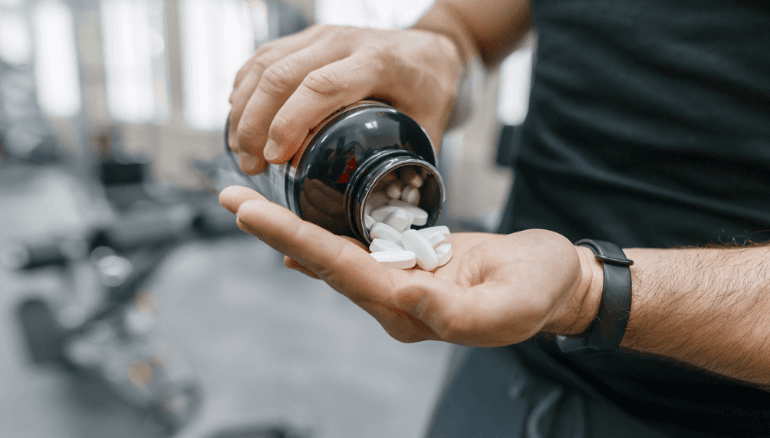Whether you want to prevent a health problem or solve one, it can be tempting to try things that promise quick, simple, and ‘natural’ solutions. Supplements are a popular option in this pursuit, with at least one-third of Australian men using them, especially as they get older.
There are many supplements on the market claiming to support prostate health, but do they work? Here’s what you need to know about the benefits and dangers of prostate health supplements.
What ingredients are in prostate health supplements?
Supplements that target prostate health commonly contain ingredients such as Serenoa repens (saw palmetto) extract, Urtica dioica nettle extract, Lycopersicon esculentum (tomato) extract, vitamin E, selenium, zinc, soy, and green tea.
However, supplements can also contain ingredients and dosages that aren’t on the label, which may pose health risks. Contamination is present in 27% of herbal products sold globally, with the proportion of adulterated products highest in Australia at 79%[1]. More than half of a range of traditional Chinese medicines available in Australia were contaminated by animal products, poisons, and/or heavy metals[2].
Are there benefits of prostate health supplements?
There’s been plenty of research into specific foods and the substances in them that could help prevent prostate cancer or manage symptoms of prostate disease and you might have seen media headlines around the benefits of things like tomatoes, soy, and saw palmetto. However, the evidence for these products (and their derivatives) is limited and it’s not possible to draw conclusions about how effective they are[3].
“Some of the data are supportive whilst others are not,” says urological surgeon, Dr Darren Katz. “For BPH (benign prostatic hyperplasia), it is possible saw palmetto may have mild benefit, but phytotherapy has really not been proven with high-quality studies to prevent prostate cancer.”
Supplements usually contain multiple ingredients, which can make it harder to determine the benefits and harms.
“Studies are difficult to perform with supplements as often different parts of the plant are used and at different dosages,” Dr Katz says.
“Nutritional supplements are the icing on the cake – the 1%,” says Accredited Practising Dietitian, Joel Feren. “If you don’t have a sound diet – the foundations of the cake – no supplement will elevate your health or promote longevity. Focus on diet and lifestyle measures before exploring nutritional supplements.”
Are there dangers to using prostate health supplements?
“Just because something is ‘over-the-counter’ and considered ‘natural’ does not mean it may not have side effects,” Dr Katz says.
You should always chat with your doctor or specialist before you start taking a supplement.
“For patients that are taking multiple medications, it is important to know if there are any interactions with any new medication,” Dr Katz says. “These potential interactions can be quite dangerous for over-the-counter supplements as they may not have been studied.”
Some research has suggested vitamin E is linked to an increased risk of prostate cancer.
Although these data are not conclusive, they do highlight that supplements aren’t as harmless as you might think.
“Some patients should actually be seeing a specialist because of a serious health issue related to the prostate and their presentation may be delayed as they trial different supplements, which may not work,” Dr Katz says.
What can help your prostate health?
There are factors that contribute to prostate problems that you can’t control, like your genetics or age. But habits like maintaining a healthy weight, eating a balanced diet, and exercising regularly can help improve your prostate health.
There are also medications that can manage lower urinary tract symptoms common in prostate disease.
“The benefit of prescription medication is that it is rigorously analysed,” Dr Katz says.
“We know precisely the side effect profile (usually very well-tolerated) as well as well-defined improvements, which are supported by large randomised controlled trials. The dosages are exact and the manufacturing process is highly regulated.”
If you’re worried about your prostate health or are experiencing symptoms of prostate disease, chat with a health professional.
References
[1] Ichim, 2019. The DNA-based authentication of commercial herbal products reveals their globally widespread adulteration. Frontiers in pharmacology
[2] Coghlan et al., 2015. Combined DNA, toxicological and heavy metal analyses provides an auditing toolkit to improve pharmacovigilance of traditional Chinese medicine (TCM). Scientific Reports
[3] World Cancer Research Fund/American Institute for Cancer Research. Diet, Nutrition, Physical Activity and Prostate Cancer: a Global Perspective. Continuous Update Project Expert Report 2018











